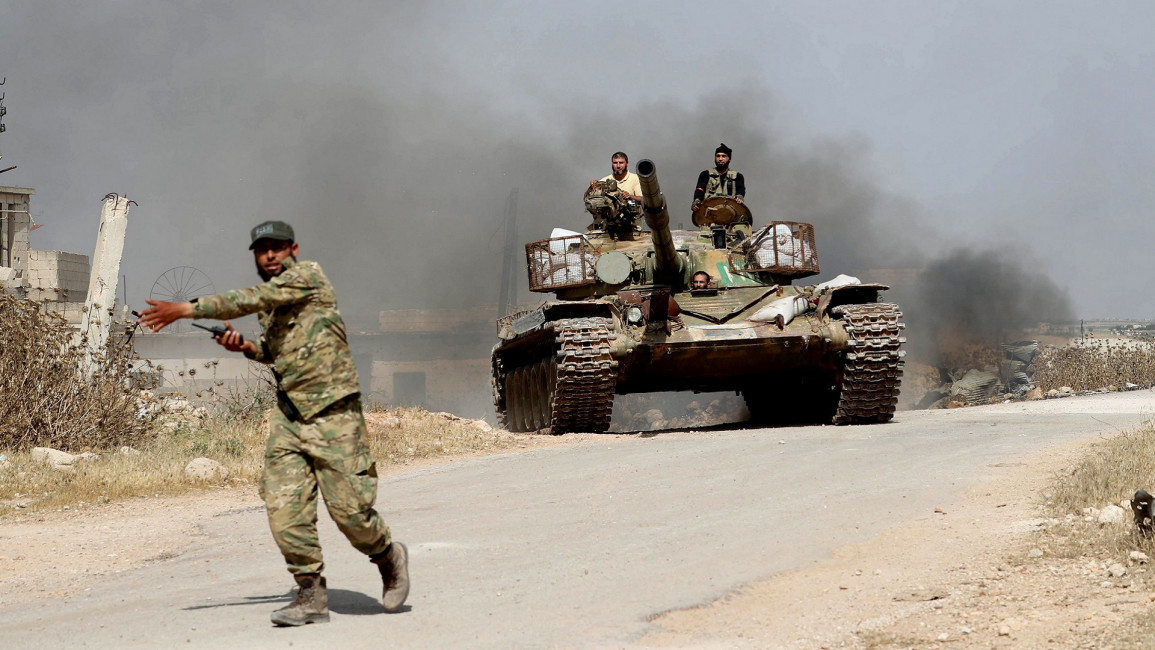Russia strikes kill 78 rebels in Syria
Air strikes by Damascus regime ally Russia killed 78 Turkey-backed rebels in northwestern Syria on Monday, a monitor said, in the bloodiest surge in violence since a truce almost eight months ago.
More than 90 others were wounded when Russian warplanes targeted a training camp of the Faylaq al-Sham faction in the Jabal Duwayli area in Idlib province, said the Syrian Observatory for Human Rights.
In early March, a truce brokered between Moscow and Ankara stemmed a Russia-backed regime military offensive on the country's last major rebel stronghold in Idlib.
That onslaught from December had killed more than 500 civilians and displaced almost a million people from their homes in one of the worst humanitarian crises of the nine-year civil war.
Observatory head Rami Abdel Rahman described Monday's strikes near the Turkish border as the "deadliest since the ceasefire came into force".
He also said they were the bloodiest Russian air raids against rebels in a single day since Moscow's military intervention in Syria in 2015.
In Idlib city, an AFP reporter saw dozens attend the funeral of some of the fighters, heads bowed and hands clasped in front of coffins in a neat line.
The National Liberation Front, an umbrella group of Ankara-backed rebels based in Idlib that includes Faylaq al-Sham, told AFP that Monday's Russian strikes hit one of its positions and caused casualties.
The group in a statement announced the death of a "large number" of its fighters, and said it would not hesitate to retaliate.
'Message to Turkey'
NLF spokesman Sayf Raad denounced the "Russian aircraft and regime forces continuously violating the Turkish-Russian deal in targeting military positions, villages and towns".
The March truce has largely held, despite some intermittent bombardment in the area from both sides.
Russian air strikes have from time to time targeted military positions, including those of Turkey-backed groups, Abdel Rahman said.
Analysts saw Monday's raids as a warning to Ankara over Turkey sending its Syrian proxies to fight in the conflicts in Nagorno-Karabakh and Libya.
Some Faylaq al-Sham combatants have individually gone to fight on the Azeri side in the Caucasus, while the faction has sent more fighters to battle in Libya on the side of the UN-recognised government, the Observatory says.
Nicholas Heras, of the Institute for the Study of War, said the raid was a message to Turkey's President Recep Tayyip Erdogan.
Russia's President Vladimir "Putin is telling Erdogan that he has the ability to strike Erdogan's favoured Syrian rebel proxies at will inside Syria, if Turkey does not de-escalate its military activities against Russian interests in conflicts in Libya, Syria, and in Nagorno-Karabakh," he told AFP.
Samuel Ramani, a researcher at Oxford University, said that Turkey's current preoccupation with Nagorno-Karabakh meant "it might not retaliate immediately."
"But the risk of a major escalation" between Russia and Turkey "remains high, as both sides fundamentally disagree on the region's future."
Parallel negotiations
The rebel bastion of Idlib is dominated by Hayat Tahrir al-Sham, led by Syria's former Al-Qaeda affiliate.
HTS late Monday deplored what it called "a massacre" against "our brothers in Faylaq al-Sham" and the "Syrian people".
Some three million people live in the Idlib region, around half in camps after being displaced by fighting in other parts of the country.
Of the almost one million people displaced in the last Idlib offensive, more than 200,000 have returned home, the United Nations says.
Monday's raid comes after the US army said it carried out a drone strike against Al-Qaeda leaders in northwest Syria on Thursday last week, with the Observatory reporting 17 jihadists killed at a dinner gathering.
Last week, Turkey withdrew from one of its largest outposts in northwestern Syria, which regime forces had encircled for the past year.
The outpost in Morek had been Turkey's largest in Hama province, most of which is now under Syrian government control.
After a string of military victories backed by Russia, the Damascus government controls around 70 percent of the country, the Observatory says.
Syria's war, which broke out after the brutal suppression of anti-government protests in 2011, has killed more than 380,000 people and displaced millions.
Endless rounds of UN-backed peace talks have failed to stem the bloodshed and in recent years have been overtaken by a parallel negotiations track led by Russia and Turkey.
Follow us on Facebook, Twitter and Instagram to stay connected



